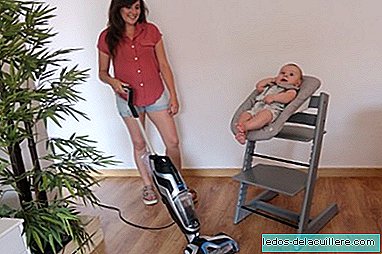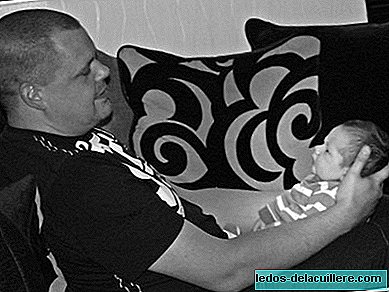
When I read that 305 million children are victims of child labor, my hair gets on end, I am not able to go above this figure just to not add a concern to my mind. I really believe that no father or mother should look the other way knowing that Children like yours are being used to settle family debts, help their parents, or increase the profits of a company.
My father had to work when I was eight years old, perhaps this fact has increased my sensitivity towards the subject, because at that age a child should not assume such great responsibilities ... that is to skip childhood.
This year, World Day against child labor leads us to the reality of children who are forced to do housework for third parties, especially exposed to violations of their fundamental human rights. UNICEF estimates that almost one in six children aged 5 to 14 are involved in child labor in the world. According to the International Labor Organization (ILO), 6.5 million children in the same age group are domestic workers.
Worldwide, millions of children work to help their families, but when children are forced into the most dangerous forms of work, when they miss school, when they are in danger and their health and well-being deteriorate, they must be removed from these types of situations
The ILO has published a report on child labor in domestic service and the protection of young workers from abusive working conditions: millions of children, mostly girls, are below the legal working age, or working in conditions dangerous or work in circumstances that amount to slavery.
The hidden reality of child domestic work
In many countries, child domestic work is not recognized as a form of child labor due to the murky relationship that unites them to the family that employs them, holds the report. The child "works, but is not considered a worker and although he lives in a family environment, he or she does not receive the treatment of a family member."
This family and legal “lack of care” conceals an “exploitation agreement,” which is often characterized by long hours of work, absence of personal freedom and sometimes dangerous working conditions. The clandestine nature of their situation makes their protection difficult.
It is said that domestic workers are among the most exploited and abused, and because many children who work as domestic employees also live with their employers, who violence makes them very vulnerable to sexual abuse And treats her.
UNICEF supports ILO Convention 189 on Domestic Workers, adopted in 2011. It was a historic treaty for women and girls working as domestic workers. Uruguay, the Philippines and Mauritius were the first to ratify it. Another 20 countries have started the process.
Many children hardly know the joy of playing. Their future and the perspectives of society would be greatly improved if they have the help they need to develop, stay safe and so that they can become children again
Many people believe that the end of Child Labor is attainable, and I would like to be one of them. However, above goodwill there are very powerful economic interests that (in some countries) they see children as cheap labor. This is the sad reality, but I bet on the intervention of governments to force the implementation of policies that prevent the work of minors in the productive chain.
And above all I bet because together we are able to increase a social conscience that leads us to refuse the purchase of products that have been made or collected by the hands of children. It is only a small step, but a small step that many people take at the same time ... that would be a change.












